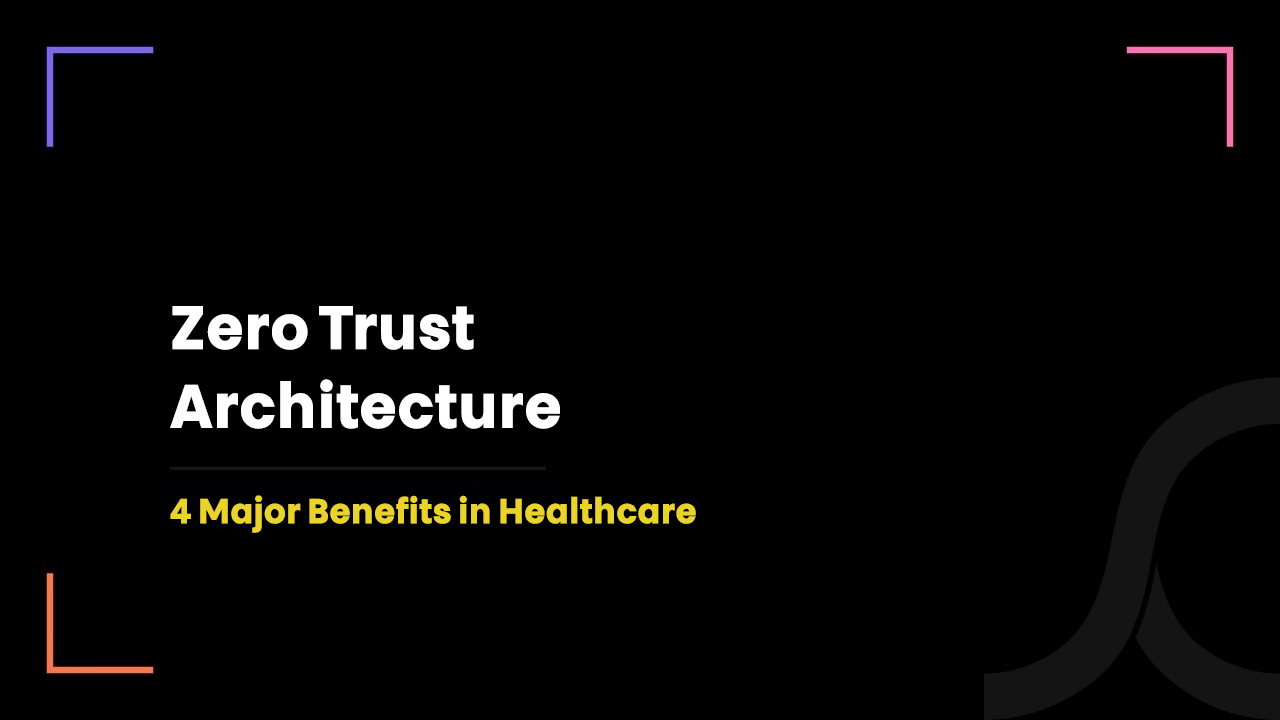Strengthen Healthcare Cybersecurity: Embrace Zero Trust in the Face of Rising Threats

1 year ago
In the digitally interconnected world, the healthcare sector has become an attractive target for cybercriminals.
The higher the digital system reliability, the higher the healthcare vulnerability to cyber-attacks.
In recent years, the healthcare industry has witnessed a significant rise in cyber attacks.
The adoption of robust security measures has become mandatory.
Among these, the implementation of Zero Trust architecture has emerged as a promising solution to safeguard sensitive patient data and protect critical healthcare infrastructure.
The Alarming Surge of Cyber Attacks in the Healthcare
The healthcare sector's digital transformation has brought forth countless benefits, such as
- Improved patient care
- Efficient data management
- Streamlined operations
However, it has also opened new avenues for cybercriminals to exploit vulnerabilities in healthcare systems.
According to a report published by the World Economic Forum (WEF) in May 2023, cyber attacks on healthcare have seen a significant surge in recent years, posing a grave threat to patient privacy, critical medical infrastructure, and public trust in the healthcare system.
The report highlights that the rapid adoption of telemedicine, interconnected medical devices, and electronic health records has created an expanded attack surface for malicious actors.
These cyber-attacks not only disrupt healthcare services but can also compromise patient safety and even result in life-threatening situations.
As the healthcare industry becomes increasingly interconnected, it is crucial to proactively address the security challenges it faces.
The Zero Trust Architecture
Zero Trust is an innovative security concept that challenges the traditional perimeter-based security approach.
It operates on the fundamental principle of "never trust, always verify."
Unlike the conventional model that assumes trust once inside the network perimeter, Zero Trust requires continuous authentication and authorization for every user, device, or application trying to access critical resources.
The core principles of Zero Trust revolve around
- Strict access controls
- Micro-segmentation
- Real-time monitoring
- Comprehensive visibility across the network
By enforcing granular access controls, healthcare organizations can ensure that only authorized users and devices can access specific resources.
This approach minimizes the potential for lateral movement within the network in the event of a breach, limiting the impact of any successful cyber attack.
Benefits of the Zero Trust Architecture in Healthcare
1. Enhanced Security Posture
By implementing Zero Trust, healthcare organizations can significantly strengthen their security posture.
The constant verification of user identities, device integrity checks, and strict access controls create multiple layers of defense against potential threats.
This proactive approach prevents unauthorized access and reduces the risk of data breaches.
2. Protecting Patient Data
Patient privacy is of paramount importance in healthcare.
Zero Trust architecture helps safeguard sensitive patient data by implementing
- Encryption
- Data loss prevention mechanisms
- Rigorous access controls
This protects patient confidentiality and ensures compliance with data protection regulations, such as the Health Insurance Portability and Accountability Act (HIPAA).
3. Safeguarding Critical Infrastructure
Zero Trust architecture not only focuses on securing patient data but also protects critical healthcare infrastructure.
Medical devices, electronic health records systems, and other mission-critical components are effectively isolated through micro-segmentation.
This isolation prevents lateral movement by attackers, reducing the likelihood of disrupting essential healthcare services.
4. Real-time Threat Detection
Zero Trust emphasizes continuous monitoring and real-time threat detection.
By implementing robust network monitoring tools and anomaly detection systems, healthcare organizations can identify potential security breaches as they occur, allowing for immediate remediation.
Timely response and rapid mitigation measures minimize the impact of attacks and aid in recovery.
The Challenges and Healthcare Implementing Considerations
Implementing Zero Trust architecture in healthcare organizations requires careful planning and coordination.
Some of the challenges include
- Legacy system compatibility
- Budget constraints
- Workforce training
- Organizational culture shift
Healthcare organizations must allocate resources, invest in cutting-edge cybersecurity solutions, and ensure ongoing training to foster a security-conscious culture within their organization.
Fortify Your Healthcare Data Security With Us!
As healthcare cyberattacks continue to rise, it has become imperative to take preventive measures.
We, at SyS Creations, ensure that your healthcare IT complies with healthcare regulations and patient data security.
Our managed security services offer:
- Next-gen firewalls and IPS
- Identity and access management
- Network visibility and security
- Security assessment
- Email and web security management
- Endpoint device security
- Work-from-home security
- Cybersecurity awareness training
We offer extensive services with multiple supported solutions to choose from, customized to your needs while ensuring your healthcare compliance.
